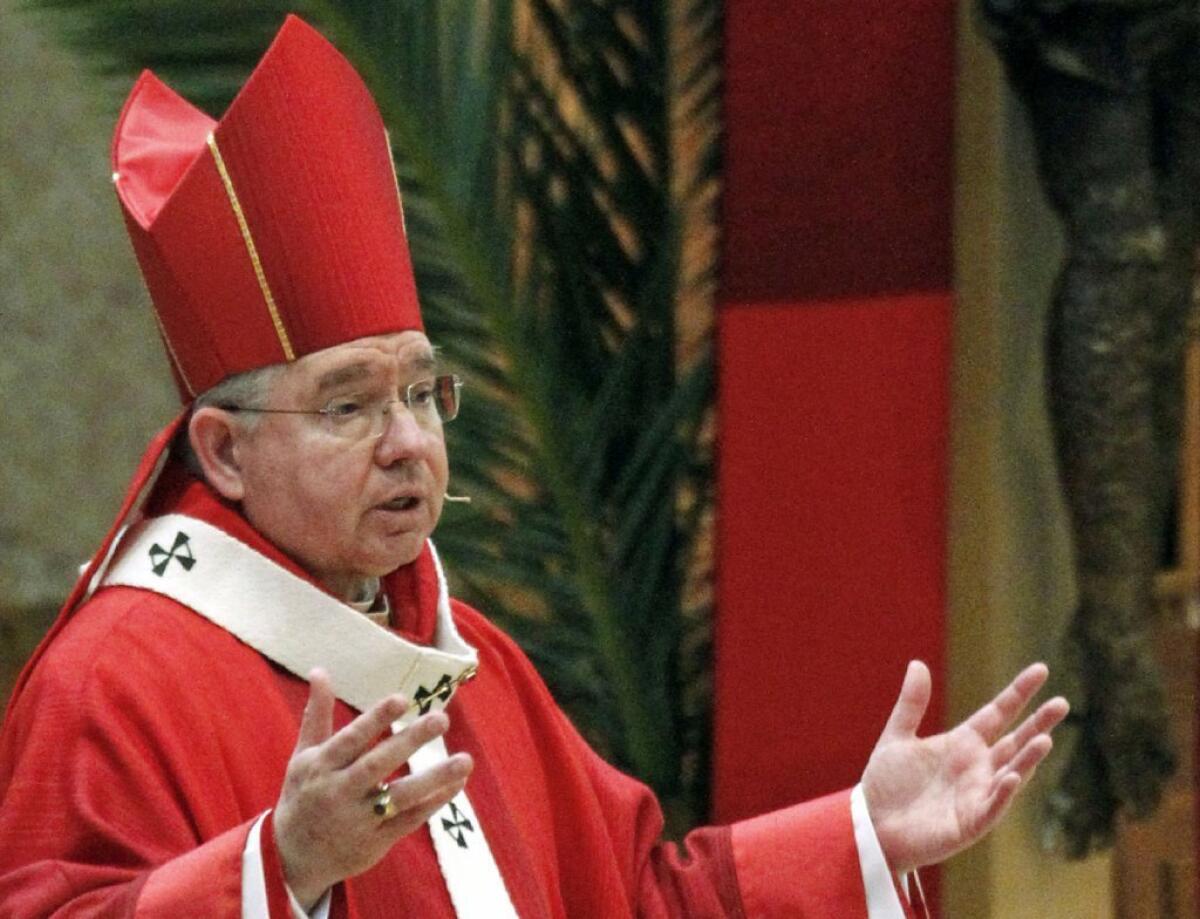Do job protections for gay people imperil religious freedom? Not really

- Share via
In ruling that discrimination against gay and transgender employees is illegal discrimination on the basis of sex, has the Supreme Court imperiled religious freedom? Both the Catholic archbishop of Los Angeles and the leading dissenter in Monday’s decision in Bostock vs. Clayton County seem to think so, but their alarm is hard to take seriously.
After the court ruled that gay and transgender employees are protected from discrimination in the workplace by Title VII of the 1964 Civil Rights Act, the U.S. Conference of Catholic Bishops released a statement by Archbishop Jose H. Gomez, the conference’s president. Gomez expressed concern that the court “has effectively redefined the legal meaning of ‘sex’ in our nation’s civil rights law. This is an injustice that will have implications in many areas of life.”
Gomez wasn’t very clear about the consequences he feared from the ruling, except to suggest that it threatened to erase “the beautiful differences and complementary relationship between man and woman” and would “harm the human family.”
The Catholic bishops were more specific in a friend-of-the court brief they and other religious groups submitted. It warned that a ruling such as the one the court handed down on Monday would “affect the ability of churches and faith-based schools and charities to hire and retain employees who, by word and conduct, accept or at least do not contradict the organization’s religious message.”
Justice Samuel A. Alito Jr. seems to agree. In a 107-page dissent joined by Justice Clarence Thomas, Alito staged a parade of horribles that might result from the majority’s reasoning, including familiar conservative bugaboos such as the required use of gender-neutral pronouns and the possibility that transgender women would play on women’s athletic teams or use women’s bathrooms. But he seemed especially concerned about religious freedom, and cited briefs filed by religious organizations.
Echoing the bishops, Alito wrote that “if a religious school teaches that sex outside marriage and sex reassignment procedures are immoral, the message may be lost if the school employs a teacher who is in a same-sex relationship or has undergone or is undergoing sex reassignment.”
Justice Neil M. Gorsuch, the author of the majority opinion, essentially said: “Calm down.” He noted that federal law makes various accommodations for religious freedom. Title VII includes an exception allowing religious organizations to favor members of the faith in hiring. Gorsuch also mentioned the Religious Freedom Restoration Act and a 2012 decision in which the court held that some teachers at religious schools are barred by a “ministerial exception” from challenging their dismissal under civil rights laws.
In any event, Gorsuch said, “how these doctrines protecting religious liberty interact with Title VII are questions for future cases.”
It’s not preordained that those future cases will result in a significant diminution of religious freedom — unless you believe religious freedom means that churches and other religious employers should be hermetically sealed off from compliance with civil rights laws.
Take the question of teachers at religious schools. Congress decided that religious employers should be allowed to favor members of their own faith in hiring, but that rightly doesn’t insulate them from lawsuits alleging that they discriminated on the basis of race or sex (which now includes sexual orientation and gender identity).
Moreover, as Gorsuch noted, the court has held that some teachers at religious schools are covered by the ministerial exception, which means that they may not sue their employer under Title VII or other civil rights laws. The exact contours of the exception are unclear. The court will soon rule on whether the exception applied to the firing of two teachers at Catholic schools in Los Angeles whose duties included religious activities.
But even if the court ruled that teachers of religion were “ministers,” it need not (and should not) extend the exception to all employees of a religious school. Not every employee of a Catholic school or university is charged with passing on the faith. Some aren’t even Catholic. They deserve the protection of civil rights laws.
One more point: The Catholic Church’s teaching about homosexuality is not simply one of condemnation. A 1997 statement by a committee of the bishops’ conference restated the church’s teaching that “it is God’s plan that sexual intercourse occur only within marriage between a man and a woman.” But it added that “the teachings of the Church make it clear that the fundamental human rights of homosexual persons must be defended and that all of us must strive to eliminate any forms of injustice, oppression, or violence against them.”
Denying employment to a science teacher, secretary or janitor because of sexual orientation or gender identity seems like the sort of injustice the bishops condemned. And requiring religious employers to comply with civil rights laws — a modern form of “rendering to Caesar” — doesn’t prevent them from teaching the faith.
More to Read
A cure for the common opinion
Get thought-provoking perspectives with our weekly newsletter.
You may occasionally receive promotional content from the Los Angeles Times.










